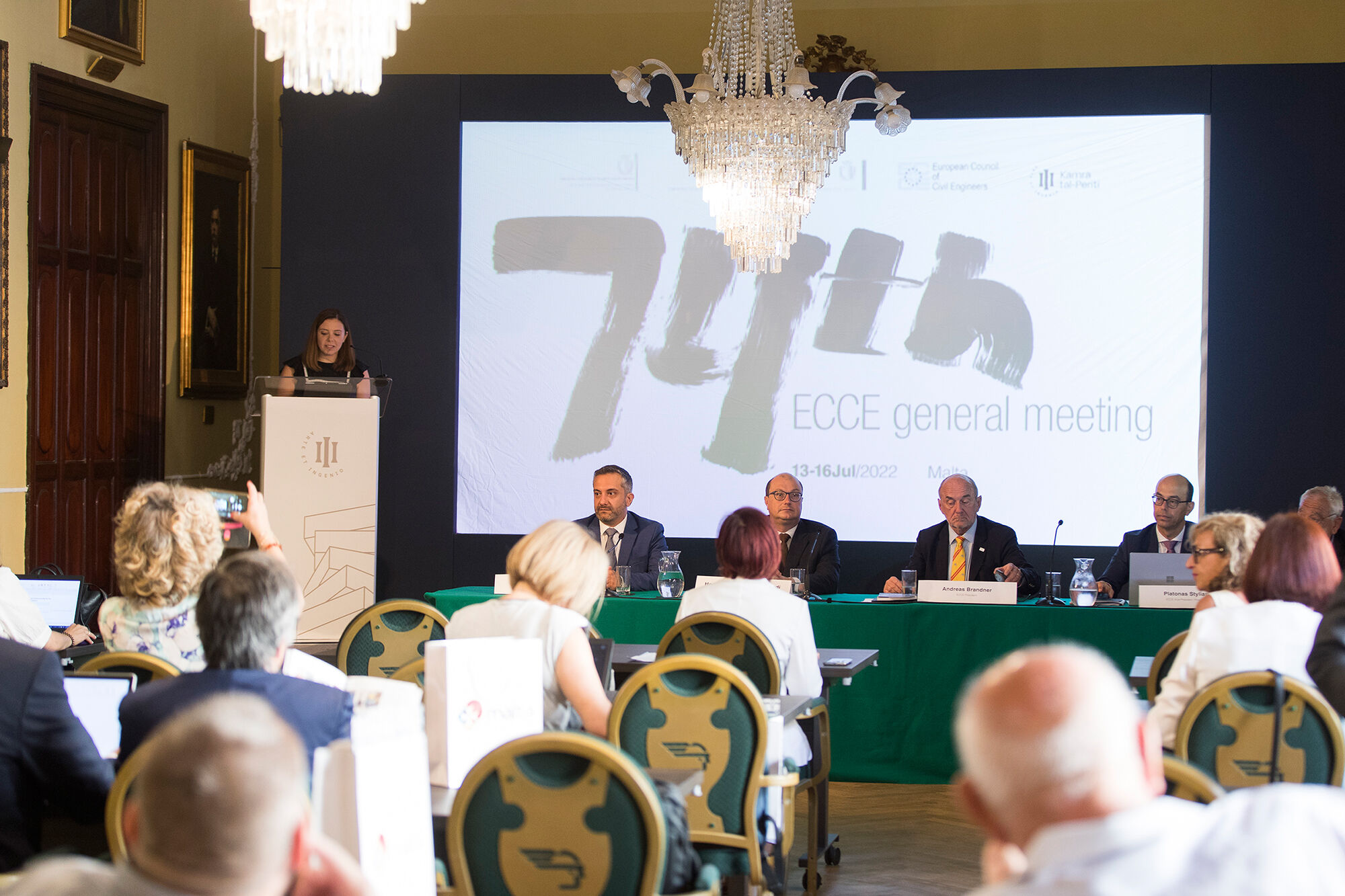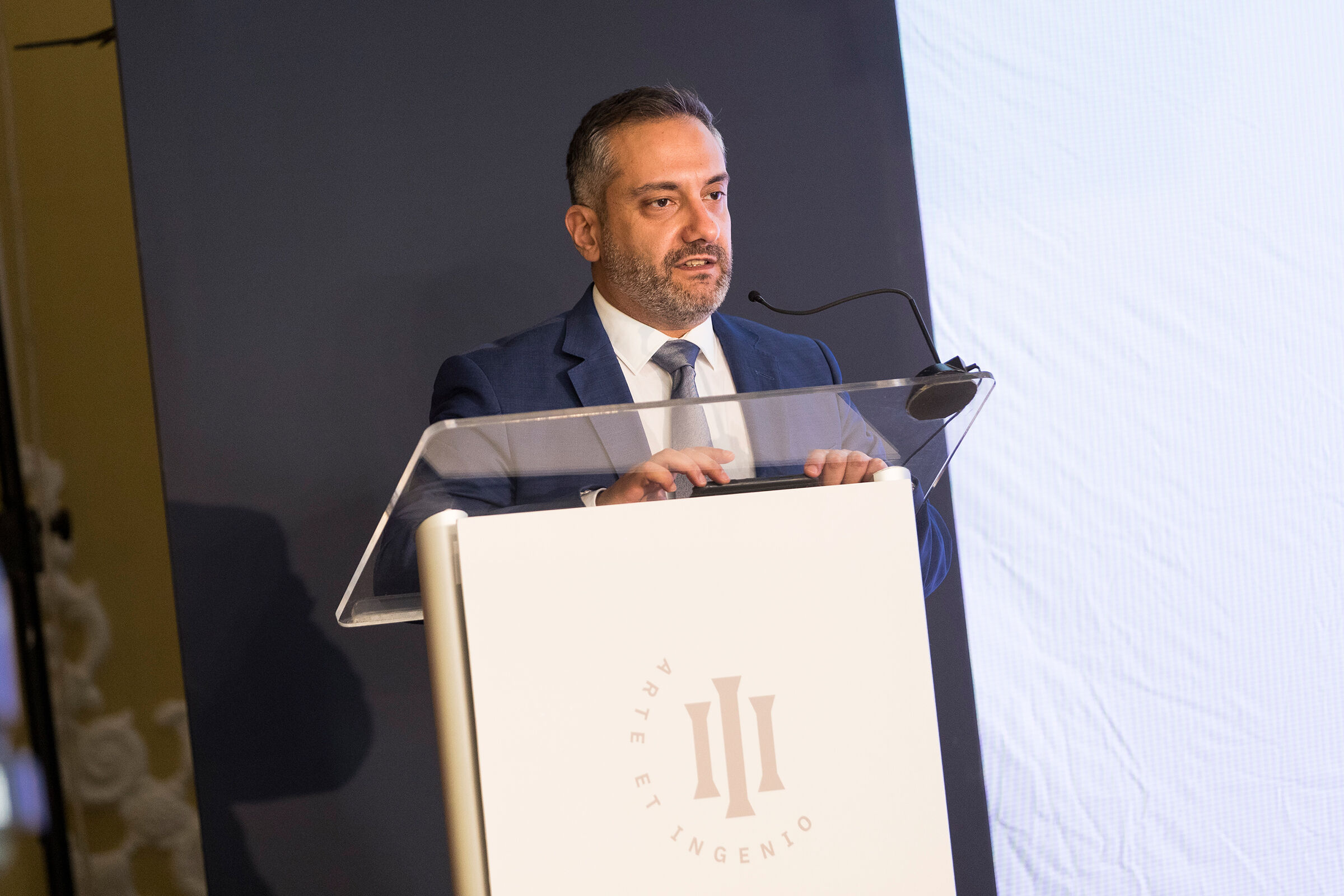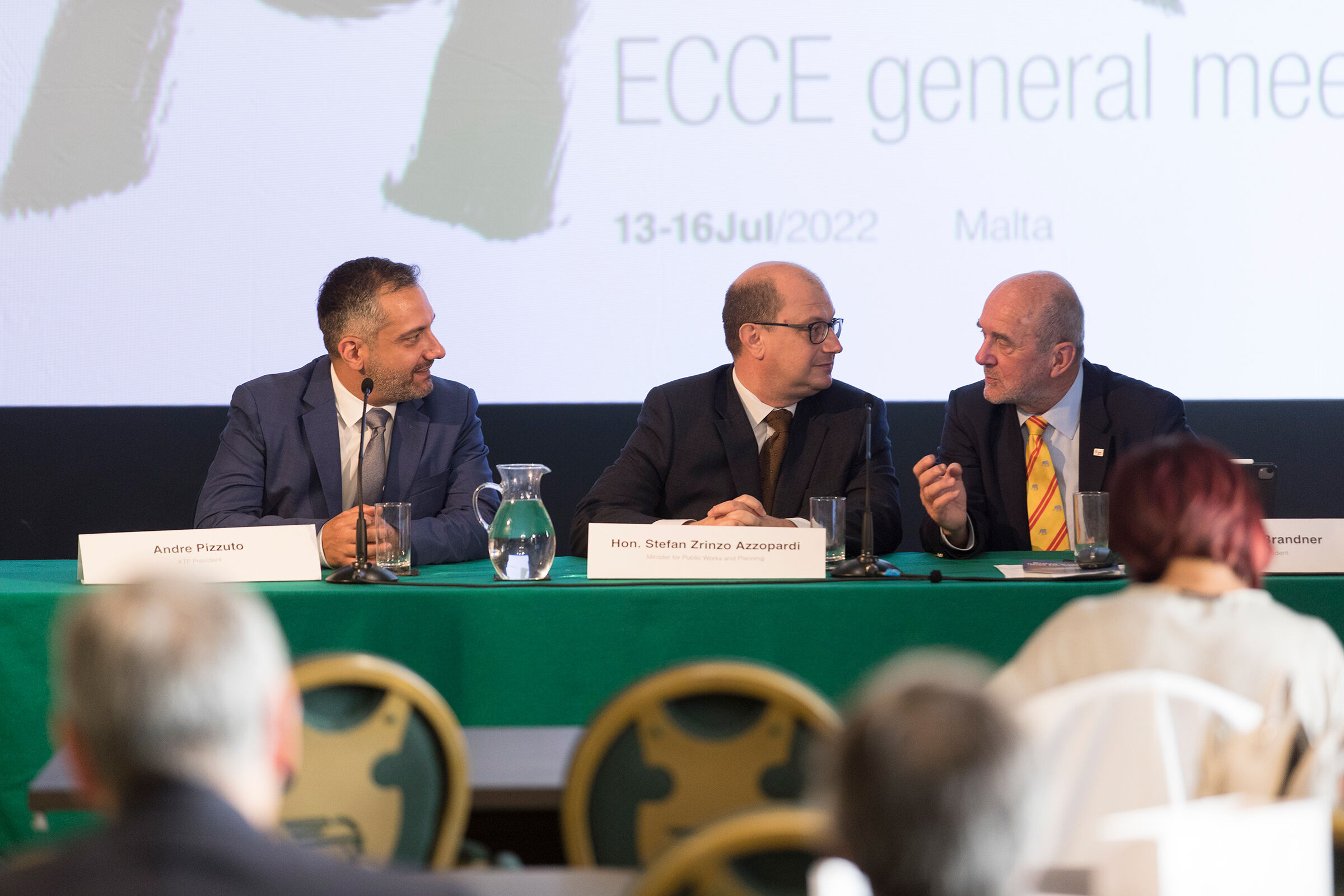PR 10/24 | Perit Dr Jeanette Muñoz Abela Elected Vice-President of ECCE
Perit Dr Jeanette Muñoz Abela has been elected Vice-President of the European Council of Civil Engineers (ECCE), bringing her extensive experience and leadership to this European institution. Dr Muñoz Abela, who currently serves as Chairperson of the Permanent Committee on Engineering within Kamra tal-Periti and has previously held the role of Vice-President of the Kamra, will continue to represent the voice of civil engineers at a European level, now as Vice-President.
Dr Muñoz Abela commented, “It is an honour to be elected as Vice-President of ECCE, an organisation that has consistently championed the civil engineering profession across Europe since 1985. As civil engineers, we are at a pivotal moment where our expertise in sustainable solutions and innovation is crucial in addressing challenges like the climate crisis and advancements in artificial intelligence.”
Her election not only underscores her individual contributions but also highlights Kamra tal-Periti’s ongoing role in shaping the profession both locally and internationally. The appointment brings valuable insights and influence to Malta’s civil engineering community, fostering stronger connections between national and European engineering bodies.
Dr Muñoz Abela will be collaborating with ECCE President, Platonas Stylianou, and the executive board to advance several initiatives, including a common training framework for easier mobility of engineers within Europe and the upcoming 2025 publication of the Civil Professional Book, which will outline the profession’s contributions across the continent.
ECCE is also focusing on digitisation within the construction industry, with a position paper addressing Building Information Modelling (BIM) and artificial intelligence in progress. As ECCE nears its 40th anniversary, it continues to work closely with universities and industry leaders to ensure the profession evolves in response to emerging challenges.






